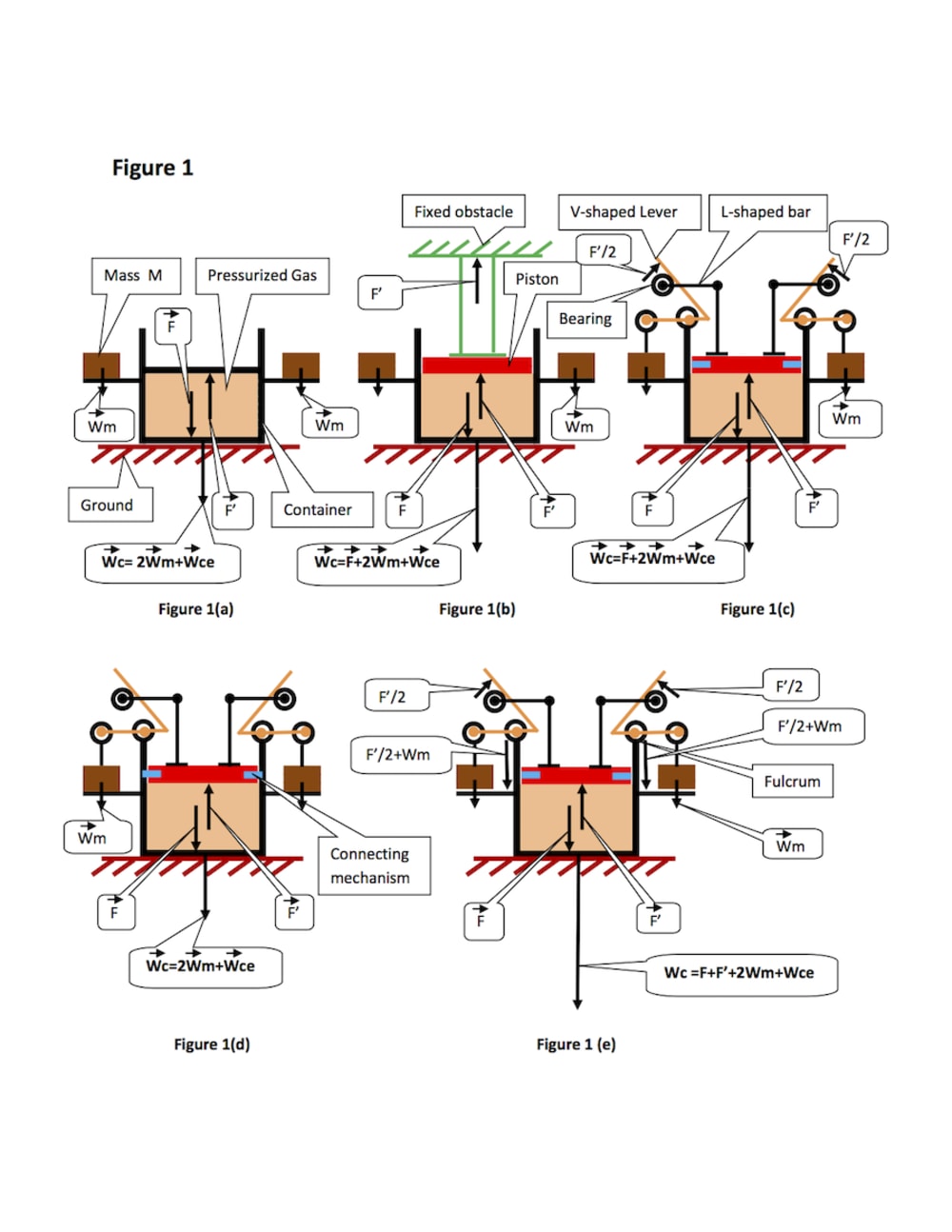The fuel less automobile engine is an engine that requires no fuel or any other kind of input.
The proposed engine is based on a novel method of reversing a force acting on an object, using a mechanism located on the same object. This object becomes then heavier than its normal weight.
Let say we have a cylindrical container full of a pressurized gas and on which two heavy mass called ”Mass m” are resting (see Figure 1(a) ). The weight Wc of this container system will be Wc = 2Wm+ Wce, Wm being the weight of each Mass M and Wce being the weight of the container itself, when empty. (Here we are neglecting the weight of the gas itself, for now). The force F and F’ caused by the gas cancel each other and they have no effect on the container weight.
On Figure 1(b), the top of the container has been replaced by a piston, and this piston is connected to a fixed obstacle located above it. The force F and F’ are no longer cancelling each other and the weight of the container will be Wc=F+ 2Wm+Wce.
On Figure 1 (c), the upward force F’ is being used to lift the two Mass m with the help of the two V-shaped levers. If the two Mass m are heavy enough, they will not be lifted and the piston will remain immobile inside the container.
In this case, the weight Wc of the container will be at least Wc= F+2Wm+Wce. Same result as in the case of Figure 1(b), because the force F and F’ do not cancel each other.
On Figure 1(d), a mechanism that connects the piston to the container has been activated. The force F and F’ cancel each other again. The weight Wc of this container will then be Wc= 2Wm+Wce
Since in the container of Figure 1(c) is exactly the same as the container of Figure 1(d), it is clear that this container has two different weights: Wc= F+2Wm+Wce if the piston is not connect to the container, and Wc= 2Wm+Wce if the container and the piston are connected.
This weight manipulation achieved for this container can be exploited to design a fuel less engine. See Figure2
But there is an error in the analysis we made for Figure 1(c). As the force F’ applies a lifting effect on each Mass m, there is a downward force equal F’/2+Wm applied by the fulcrum of each lever on the container, provided that Wm is in equilibrium with F’/2 (See Figure 1(e)). The real weight of the container of Figure 1(c) is then Wc= 2F+2Wm+Wce (as F=F’).
On Figure 2, the design proposed allows easily alternating the weight manipulation between the two containers, and the crankshaft will spin propelled by the difference of weight between the containers.
Figure 2 shows the design for a fuel less engine that can be used for any purpose to supply energy.
Like this entry?
-
About the Entrant
- Name:Jean Pierre Twagirayezu
- Type of entry:individual
- Patent status:pending





